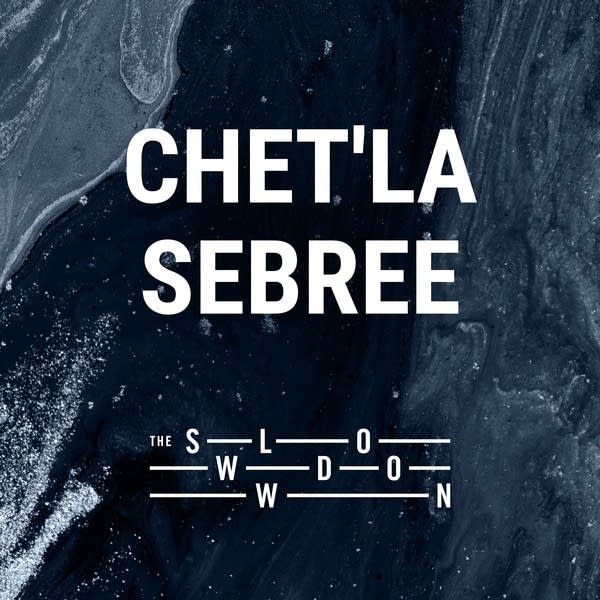1405: Entry by Chet'la Sebree

1405: Entry by Chet'la Sebree
TRANSCRIPT
I’m Maggie Smith, and this is The Slowdown.
Literature is full of characters who are punished for their curiosity. The biblical story of Eve comes to mind, of course. In Abrahamic religions, Eve was the first woman God created. She was warned by God not to eat from the tree of knowledge, but then—tempted by a serpent—she did, and she shared the fruit with Adam. As the story goes, because of that transgression, they were expelled from paradise. Long story short, a woman’s curiosity led to humanity’s fall from grace.
There’s also the Greek myth of Pandora, which is parallel in many ways. Pandora, the first woman created by the gods, was given a jar by Zeus. She was warned not to open it. I’m guessing you can see where this is going. Pandora’s curiosity got the best of her, so she opened it, releasing all of the evils of the world—disease, sorrow, and death. This story is where we get the idiom "to open a Pandora's box", meaning to do or start something that will cause many unforeseen problems.
The fact that both of these origin stories begin with curious women—women who ignored warnings and instructions, and who wanted to know—isn’t lost on me. The word scapegoat comes to mind. We’re all curious. We all want to know more. And frankly, if someone tells you DON’T OPEN THAT BOX what do you want to do? You want to look in the box. That’s HUMAN NATURE 101.
As a parent, I want to value curiosity over compliance, even when it’s messy. My children sometimes “talk back,” but respectfully. They question authority—again, respectfully. I want them to ask “Why are these the rules?” and “Why do we have to do things this way?” This gives us a chance to have real, meaningful conversations about their values, and about their decision-making. I’d much rather have these conversations as a result of questioning, and even pushback, than to have children who do as they’re told without thinking.
It's human nature to want to know for oneself, not only to trust in the knowledge of others. It’s human nature to want to make decisions for oneself, not only to trust in the decisions of others. It’s human nature to want to see for oneself, firsthand, not mediated by others.
Today’s poem touches on these enormous issues—knowledge, curiosity, punishment—in such a compressed and artful way.
Entry
by Chet’la Sebree
I seek truth in each prism like a dictionary definition— find fact in each entry, tidy in its articulation of knowledge. Search: earliest language. And even the algorithm assembles answers aligned in four-sided figures. All life’s knowledge beholden to right angles and rectangles like the block typeset of a biblical text. There’s something soothing about this illusion of equity—a bedfellow I seek but cannot perceive even in trees. Each branch will stretch at a different degree, will know nothing of symmetry. Eve the only one cursed for eternity. Is this what it is to be part of the living? This being the prism. This being the tree.
“Entry” by Chet’la Sebree from BLUE OPENING © 2025 Chet’la Sebree. Used by permission of Tin House, an imprint of Zando, LLC and Levine Greenberg Rostan Literary Agency.


